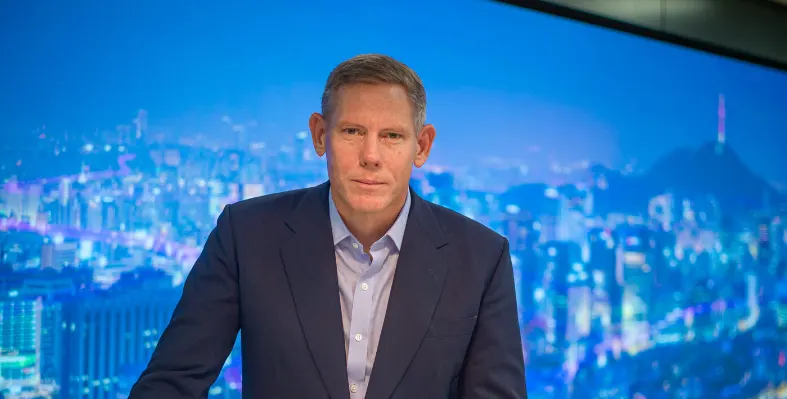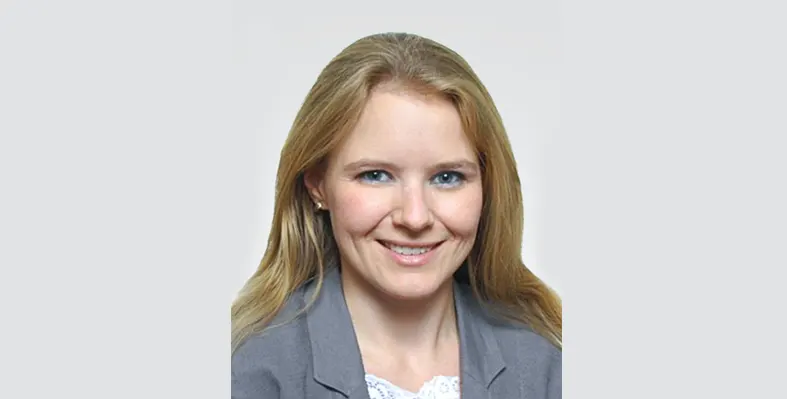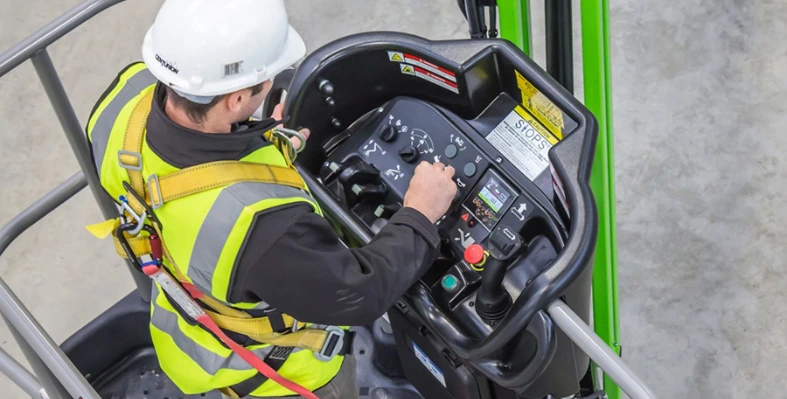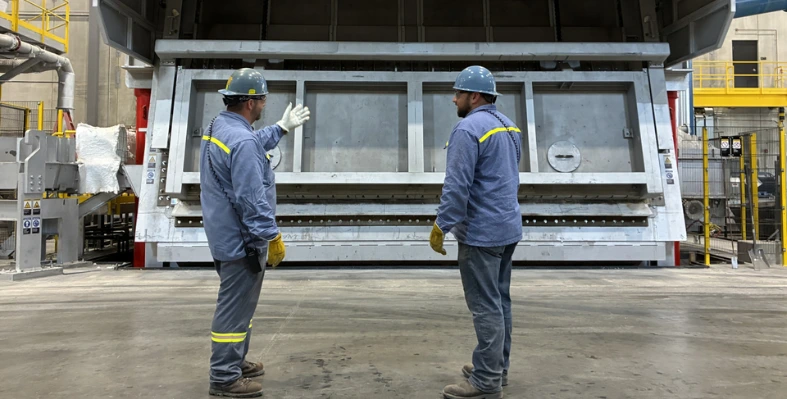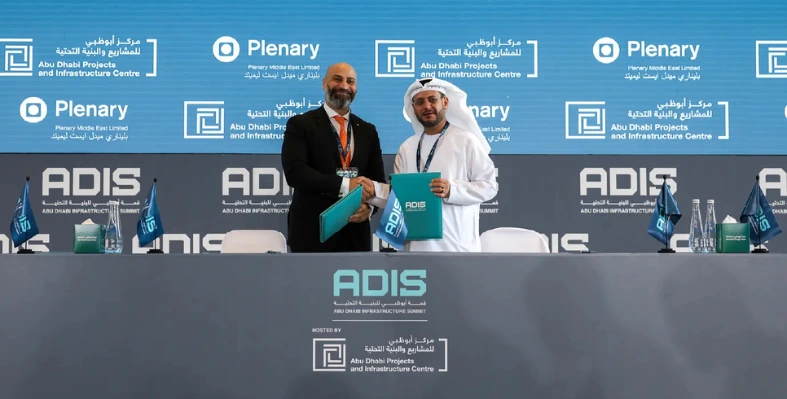In The Spotlight
Tadweer acquires Masdar’s stake in Sharjah waste-to-energy plant
Abu Dhabi Future Energy Company PJSC, Masdar has announced the divestment of its stake in the Sharjah Waste-to-Energy plant, pending customary closing conditions, to Tadweer Group.
The strategic move will see Tadweer join BEEAH as a joint venture partner in Emirates Waste-to-Energy, which owns and operates the facility.
The transition allows Masdar to concentrate on scaling its clean energy portfolio, while Tadweer sharpens its focus on local and global waste management ventures.
Tadweer and BEEAH will now combine forces to manage and expand the Sharjah Waste-to-Energy plant, including plans to double its power generation from 30 MW to 60 MW and significantly boost waste processing capacity.
Inaugurated in 2022, the plant is the Middle East’s first commercial-scale waste-to-energy facility and plays a central role in the UAE’s strategy to divert waste from landfills and generate low-carbon electricity.
The agreement reinforces all partners’ commitment to sustainability, with continued collaboration expected on initiatives that support the UAE’s clean energy goals and broader climate agenda.
Mohamed Jameel Al Ramahi, chief executive officer of Masdar, said, “We are proud of the impact this project has had within the UAE, and we extend our sincere thanks to BEEAH for their valued partnership since the inception of our Emirates Waste-to-Energy joint venture. As we transfer our stake, we are confident that Tadweer and BEEAH will continue to advance the project with strong leadership and a clear strategic vision.”
Ali Al Dhaheri, managing director and chief executive officer of Tadweer Group, said, “Acquiring this high-performing asset will further enhance Tadweer Group’s capabilities and support the UAE’s ambition to become a global leader in sustainable waste management and energy conversion. We look forward to working with BEEAH to build on the strong foundations it has laid working alongside Masdar.”
Khaled Al Huraimel, group CEO of BEEAH Group, said, “We thank Masdar for having partnered with us in the Emirates Waste-to-Energy joint venture and their support on the Sharjah Waste-to-Energy Plant, our inaugural, groundbreaking project. We look forward to further building on these accomplishments alongside Tadweer Group as a joint venture partner, marking a new chapter of growth and waste-to-energy innovation for the nation and the region.”
Also read: UAE Council launches national waste exchange platform
Iveco celebrates 50 years
Is the GCC leading in sustainable construction?
The International Code Council (ICC) looks at how the construction landscape in the GCC is changing, especially with smarter materials, cooling, and policy changes.
Behind the GCC's towering structures and landmark megaprojects lies a critical question: how can the region build in a way that is not only transformative but also sustainable?
As urbanisation intensifies, construction is under mounting pressure to evolve. Sustainability is no longer optional, it is essential. The choices made today will shape the resilience and livability of tomorrow’s cities.
To meet this challenge, governments and developers across the region are actively rethinking how buildings are designed, constructed and operated.
From low-carbon materials to pioneering technologies and updated regulations, the GCC is making bold moves to create a greener built environment.
A major focus is on improving energy efficiency, particularly through smarter cooling.
In a region where air conditioning can account for up to 70% of a building’s energy use, upgrading HVAC systems is both an environmental and financial imperative.
This has spurred the adoption of passive cooling techniques, better insulation, and demand-driven systems powered by renewables, enabling climate control with a lighter carbon footprint.
Green materials
The materials used in construction are also undergoing a transformation.
Concrete, long the backbone of GCC development, is now being refined with low-carbon alternatives and advanced admixtures to reduce emissions without compromising strength or durability.
This shift is being accelerated through regional standardisation and innovation in cement technology.
In parallel, the GCC, particularly the UAE, is leading a global push toward 3D-printed buildings.
These structures reduce material waste, speed up project timelines, and allow for complex, custom designs. They represent a fundamental reimagining of how construction can be more efficient, scalable and sustainable.
Underpinning these efforts are national climate policies like the UAE Net Zero 2050 and Saudi Arabia’s Vision 2030 and Green Initiative.
These frameworks are driving practical action, not just policy statements, supported by updated building codes and new training pathways for professionals.
Programmes from bodies such as the International Code Council (ICC) are equipping the workforce with the skills needed to meet increasingly ambitious environmental standards.
The GCC’s approach to sustainable construction is comprehensive: it combines innovation, policy, and people. In doing so, the region is not just keeping pace with global trends, it is setting new ones.
Through its commitment to smarter, cleaner, and more responsible building, the GCC is demonstrating that environmental stewardship and architectural progress can, and must, go hand in hand.
Also read: ICC to showcase global building safety standards in Egypt
Sustainable Aviation Futures MENA
Dates:
10-12 February 2025
Location:
Emirates Palace Mandarin Oriental, Abu Dhabi
Website:
https://www.safcongressmena.com/
Masdar and Iberdrola expand offshore wind portfolio in Europe
Masdar and Iberdrola have achieved two major milestones as part of their US$16.35bn strategic clean energy alliance: a US$5.67bn co-investment in the UK’s East Anglia THREE offshore wind farm and the full energisation of their 476MW Baltic Eagle project in Germany.
The East Anglia THREE project marks one of the largest offshore wind transactions of the decade, with Masdar and Iberdrola each holding a 50% stake and shared governance. Located off the Suffolk coast, the 1.4GW wind farm is expected to begin operations in Q4 2026, providing clean electricity to 1.3 million homes.
A US$5.25bn project finance facility has been secured from 24 international banks, oversubscribed by 40%, highlighting strong investor confidence. The project benefits from a 15-year Contract for Difference (CfD) and a Power Purchase Agreement with Amazon signed in 2024.
In Germany, the Baltic Eagle offshore wind farm has now been fully energised. As the first completed project under the Masdar–Iberdrola partnership, it will supply around 475,000 households with clean energy and eliminate approximately 800,000 tonnes of CO₂ emissions annually. Located in the Baltic Sea, the 476MW wind farm is part of Iberdrola’s Baltic Hub, which also includes Wikinger and the planned Windanker project.
These developments strengthen the partnership’s goal to triple global renewable energy capacity by 2030, while supporting Europe’s offshore wind targets and advancing energy transition goals across the UK, Germany and beyond.
Signalling an Emirati-European partnership
HE Dr. Sultan Al Jaber, UAE Minister of Industry and Advanced Technology and Chairman of Masdar, said, "Masdar and Iberdrola are continuing to forge one of the largest and most powerful strategic clean energy partnerships to accelerate capacity growth in Europe and worldwide. Offshore wind will play a crucial role in the global energy transformation, and landmark developments like Baltic Eagle and East Anglia THREE are significant advances towards clean energy targets in major European nations. With demand surging due to exponential AI growth and the rise of emerging markets, projects such as these have never been more critical."
Ignacio Galán, Iberdrola’s executive chairman, said, "Today is an important landmark in our global partnership with Masdar. Partnerships such as this one are vital in accelerating energy security and competitiveness and working towards delivering ambitious climate targets. With Masdar, we have a partner who shares our vision and commitment.
Joining forces with Masdar in the East Anglia THREE offshore windfarm will allow Iberdrola to accelerate our strategic focus on the UK, where we are investing £24bn to 2028 in transmission and distribution networks and in renewable energy, contributing to the delivery of the UK Government’s ambitious electrification plans. The completion of Baltic Eagle represents a new milestone in our partnership, reinforcing Iberdrola’s commitment to electrification and strengthening our presence in the Baltic Sea."
Mohamed Jameel Al Ramahi, chief executive officer of Masdar, said, "This landmark partnership underscores our commitment to driving Europe’s energy transformation and advancing global climate goals. Our strategic co-investments with Iberdrola in East Anglia THREE and Baltic Eagle demonstrate how ambitious cross-border partnerships can deliver transformative impact at scale. Together, we are setting a new benchmark for offshore wind collaboration, and we are looking forward to deepening this partnership as Europe accelerates its renewable energy targets."
Also read: Aed Energy secures investment to scale thermal storage in MENA
Acciona's role in the future of wastewater treatment in Egypt
ACCIONA, along with local firm DHCU, obtained an €35mn (US$38.15mn) contract from Egypt’s Construction Authority for Potable Water and Wastewater (CAPW) so it can operate and maintain Phase II of Cairo's Gabal El Asfar wastewater treatment complex.
The eight-year agreement rehabilitates also upgrades two major plants within the facility so that they can each treat 500,000 m³ per day.
Gabal El Asfar is known to be the largest wastewater treatment complex located in Africa as well as the Middle East. This ranks it third globally, with a total capacity of 2.5 m³ per day.
Home to more than eight million residents, it serves the vital eastern part of Cairo.
ACCIONA’s already established footprint is further reinforced by this latest contract within Egypt’s water sector.
The company led the design, construction, and commissioning in a previous expansion phase at Gabal El Asfar in 2013, adding another 500,000 m³ to its daily capacity.
ACCIONA and DHCU were entrusted not too long ago in 2022 for Phase I's operation and improvement that handles 1.5 m³ of wastewater for each day.
Other developments
Beyond Gabal El Asfar, ACCIONA has partnered together with CAPW on additional projects, and this includes the water infrastructure operations for New Cairo.
The initiative collects water from the Nile River and then transports the water. It then purifies the water and distributes to consumers in the satellite city 30 kilometers east of the capital.
The company constructed five other major drinking water treatment plants throughout Egypt.
The Almerya, Rod el Farag, Mostorod, North Helwan I, and North Helwan II plants serve collectively over six million people because they have a combined capacity that exceeds 600,000m³ per day.
Within ACCIONA’s portfolio is the Bahr Al Baqr wastewater treatment plant. It is actually another key project that is located in northwestern Egypt.
It has 5.6 m³ capacity as one of the world’s largest, designed for high-quality water production for agricultural irrigation.
Additionally, ACCIONA operates several other wastewater facilities in Egypt as these facilities include those located in Abnoub-El Fath, Sodfa-El Ghanayem, El Ayat, and Abu Simbel.
Sustainable infrastructure and renewable solutions are led by ACCIONA globally.
They have been keeping to carbon neutrality since back in 2016.
Operations are maintained in more than 40 countries, also the company reported €19.19bn (US$21bn) in sales for 2024.
Also check out:
MENA platform aims to enhance clean water accessibility
Water diplomacy: how UAE supports island nations' water security
ALEC secures BIM Kitemark recertification for third consecutive year
ALEC, one of the Middle East’s leading construction companies, has once again achieved the BIM Kitemark recertification from BSI.
This marks the third consecutive year it has met the global benchmark for excellence in Building Information Modelling (BIM) and information management under the ISO 19650 series of standards.
The achievement reinforces ALEC’s position at the forefront of digital transformation in construction, aligning with findings from the McKinsey Global Institute, which show that technology and innovation can enhance construction sector productivity by up to 60%.
Recognised globally as one of the most rigorous certifications for information management, the BIM Kitemark requires companies to pass a detailed audit.
ALEC was assessed on its ability to meet client information requirements, maintain accuracy and consistency, enable effective supply chain collaboration, and comply with the ISO 19650 framework.
This recertification not only validates ALEC’s ability to lead digital delivery but also reflects its role in raising industry standards.
VR and other tools
Throughout the past year, ALEC has advanced its Innovation Strategy, supported by focused Digital and IT strategies. Technology and automation remain central to its approach, with initiatives such as a new ERP system to streamline internal processes, expanded use of HoloBuilder, and the introduction of ‘Resolve’, a VR tool integrated with Revizto’s issue tracker.
In parallel, ALEC continues to scale the use of Morta, a data structuring and standardisation platform that allows the company to digitalise ISO 19650 documentation and improve project oversight across design change, procurement, and risk management.
Through this sustained focus on digital innovation, ALEC is not only enhancing its operational performance but also shaping the future of construction in the region.
Barry Lewis, CEO at ALEC, said, “Innovation is part of our DNA, and securing this BIM recertification for a third consecutive year highlights how deeply embedded our digital-first mindset has become. We see enormous growth potential in the region, particularly in the UAE and Saudi Arabia, and our ongoing investments in innovation and digital excellence enable us to remain agile, deliver the highest quality projects, and capitalise on these opportunities.”
Andy Boutle, head of digital construction at ALEC, said, “We see this recertification as another step on a much broader journey. The regional industry has made great strides in BIM adoption, but there’s still a gap to bridge to reach the next level of utilisation and maturity in line with international standards. At ALEC, we’re committed to helping close that gap, not just within our own projects but also by leading by example and encouraging our partners and clients to embrace a digital-first mindset. In the months ahead, we’ll continue to focus on building seamless interconnectivity between our digital solutions, creating a more data-driven, efficient, and sustainable way of delivering projects.”
Alcoa exits Ma’aden joint venture in US$1.35bn deal
Alcoa Corporation has finalised the sale of its 25.1% stake in the Ma’aden joint venture to Saudi Arabian Mining Company (Ma’aden), marking a strategic exit from the integrated mining complex the two companies launched in 2009.
The transaction was completed under a binding share purchase and subscription agreement.
In exchange, Alcoa received around 86 million Ma’aden shares, valued at approximately US$1.2bn, alongside US$150mn in cash, which will primarily be used to cover taxes and transaction costs.
The company expects to report a gain of roughly US$780mn under other income for the third quarter of 2025.
In line with past asset sales, this gain will be recorded as a special item.
Saudi mining growth
Alcoa, which is based in Pittsburgh in Pennsylvania, is a global leader in bauxite, alumina, and aluminium products. It will now hold an estimated 2% of Ma’aden’s outstanding shares.
As stipulated in the agreement, these shares must be retained for a minimum of three years, with one-third eligible for sale after each of the third, fourth, and fifth anniversaries of the transaction’s closing.
However, under certain conditions, Alcoa is allowed to hedge or borrow against the shares during the holding period, and the lock-up may be reduced in specific scenarios.
The Ma’aden joint venture, established as a fully integrated aluminium production complex in Saudi Arabia, comprises the Ma’aden Bauxite and Alumina Company (MBAC) and the Ma’aden Aluminium Company (MAC).
Prior to the deal, Ma’aden held a 74.9% majority stake.
Citi served as Alcoa’s exclusive financial advisor for the transaction, while legal counsel was provided by White & Case LLP.
“While today marks the end of the Joint Venture, the closing of this transaction demonstrates the initial value to our shareholders and enables visibility within Alcoa’s financials until we monetize in the future,” said William F. Oplinger, Alcoa’s president and CEO.
“I thank Ma’aden’s leadership and the Kingdom of Saudi Arabia for their partnership over the last 16 years, and we look forward to continued engagement as Ma’aden shareholders.”
Also read: Power Metallic gets licensed to explore Saudi mineral belt
Teledyne GFD and IDS to launch gas sensor production in Saudi Arabia
Teledyne Gas & Flame Detection (Teledyne GFD) has partnered with Industrial Detection Solutions (IDS) to establish a 699 m² manufacturing facility in Dammam, Saudi Arabia, marking a significant step towards localising production of advanced gas detection technologies in the Kingdom.
The facility, which opened on 19 June 2025, will produce high-precision sensors used in hazardous environments such as oil and gas drilling sites, LNG/CNG plants, and petrochemical facilities.
The initiative supports Saudi Arabia’s IKTVA programme, which encourages economic diversification and local supply chain development in the energy sector.
By bringing manufacturing closer to end users and suppliers, the partnership is expected to reduce lead times and enhance safety support across the region.
More features added
Key products to be produced at the new plant include Teledyne GFD’s DM-700 toxic gas sensor, and the FP-700 and IR-700 sensors for combustible gas detection.
These ‘smart’ sensors offer non-intrusive monitoring using electrochemical, catalytic bead, and infrared technologies, with robust designs that resist common causes of failure such as water ingress, corrosion, and vibration.
“Our new partnership with Industrial Detection Solutions ensures that manufacturing is closer to both customers and suppliers, enabling even faster delivery of class-leading gas detection products in support of more efficient supply chains,” said Thomas Moeller, VP Sales & Marketing at Teledyne GFD. “The proven solutions manufactured in KSA will better serve a vast regional industry that recognises the importance of a robust and prevalent safety culture. We are proud to be part of KSA’s remarkable ongoing journey of economic and industrial growth, and we look forward to a successful future together.”
Teledyne GFD recently also introduced the PS DUO, a new portable dual-gas detector designed to improve personal safety in hazardous environments. The compact handheld device can detect two gases simultaneously using passive diffusion sensing, and features real-time monitoring with audible, visual and vibrating alarms to alert users when gas levels exceed safe limits.
The PS DUO offers a broad selection of gas combinations including carbon monoxide (CO), hydrogen sulphide (H₂S), sulphur dioxide (SO₂), ammonia (NH₃), oxygen (O₂), hydrogen (H₂), nitrogen dioxide (NO₂), and ozone (O₃). Its ATEX/IECEx rating and 2-year warranty make it ideal for industrial settings. Users can select gas pairings tailored to their specific applications, such as H₂S and SO₂, particularly relevant in Middle Eastern operations.
The detector features a bright LCD screen displaying continuous gas concentration, wireless connectivity for easy data transfer, and internal memory capable of storing 30 alarm logs. Housed in a rugged IP67-rated rubberised casing, the PS DUO is lightweight (200g), ergonomic, and designed for comfort and ease of use in demanding environments. It runs for up to two years on a single replaceable battery.





